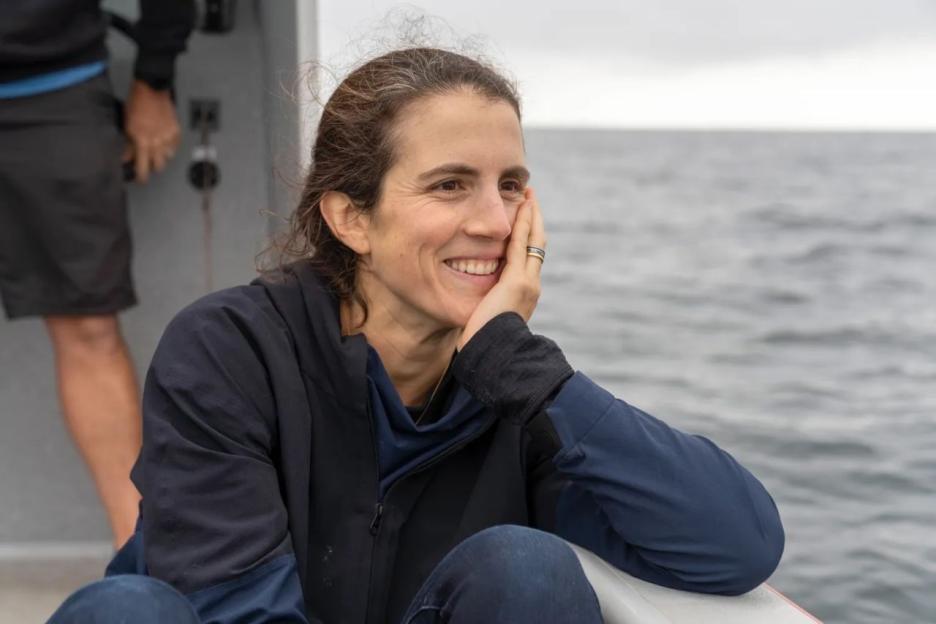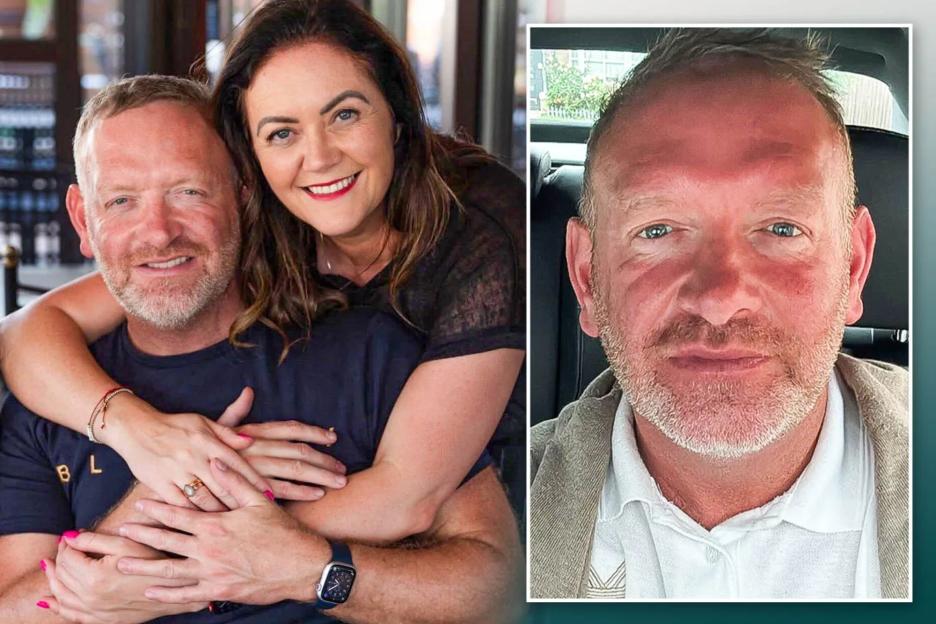STRAPPED to a stretcher in an ambulance, Alicia Kember desperately tried to make sense of what was happening.
On August 7, 2022, the now 26-year-old had woken up in the villa in Portugal where she was staying with a friend, looking forward to another relaxing day on the beach.
 Alicia Kember, pictured on the night before she had a stroke, initially thought she may have had her drink spiked
Alicia Kember, pictured on the night before she had a stroke, initially thought she may have had her drink spiked
 Doctors also suspected there was a straightforward, holiday-related explanation for her state
Doctors also suspected there was a straightforward, holiday-related explanation for her state
But as she got up to use the loo, Alicia was struck with an intense dizzy sensation – and collapsed on the floor, throwing up and passing out.
Alicia, from Surrey, tells Sun Health: “I think I was drifting in and out of consciousness for around an hour before I remembered, through the fog, that I was wearing my smart watch and could call my friend Chloe on it.
“After finding me lying on the bathroom floor, unable to get up, she immediately called an ambulance.”
Chloe’s initial assumption was that one of Alicia’s drinks the night before had been spiked, and as she was rushed into A&E, Alicia too was trying to find an explanation for this sudden onset of illness.
Alicia remembers: “I thought I must have been spiked the night before when we were out.
“Or, maybe I was experiencing a reaction to some cheap alcohol, or had heatstroke or food poisoning ?
“My mind was racing, and I felt scared and confused, as doctors and nurses surrounded me, trying to establish what was wrong.”
Doctors also suspected there was a straightforward, holiday-related explanation for her state.
She says: “They thought it was down to drink or drugs, and I was just another young person on holiday who’d partied too hard.
“One asked me, ‘Did you take something?’ and in trying to answer no, I realised my speech wasn’t normal.
“My voice felt weak, and my mouth was shaky as I tried to form words.
“When it became clear my condition wasn’t improving, and I couldn’t even get out of bed unaided, I was taken for a CT and MRI scan.
“Then, a doctor delivered the shocking diagnosis that I’d suffered a stroke , explaining that the blood flow to a part of my brain had been cut off.”
Stroke shock
In the UK, over 100,000 people have a stroke or mini-stroke every year.
Most people who have strokes are over 65, but one in four strokes happens in younger people, according to the charity Different Strokes ( differentstrokes.co.uk ), which supports younger stroke survivors.
“I was immediately transferred to the ICU and hooked up to beeping machines and drips,” says Alicia.
“I still felt incredibly unwell and exhausted, and just couldn’t properly process this news.
“Surely strokes were something that happened to the elderly, not a 23-year-old on holiday?”
 Alicia leans on her dad for help walking a few weeks after her stroke
Alicia leans on her dad for help walking a few weeks after her stroke
 For three months, Alicia was cared for by nurses from a local hospital which had a neuro-rehab unit
For three months, Alicia was cared for by nurses from a local hospital which had a neuro-rehab unit
Alicia’s parents and her boyfriend Josh, now 27, flew to Portugal, where they spent the next month by her hospital bedside.
“The stroke had affected the cerebellum [part of the brain], which is responsible for coordination and balance,” says Alicia.
“As a result, although I wasn’t paralysed and could eat and drink, my fine motor skills were very poor, my speech weak, and I was wobbly on my feet.”
After a multitude of tests failed to confirm why Alicia had suffered a stroke, Portuguese doctors agreed she could fly home in September 2022.
I was trying to process how I’d gone from being on holiday after graduating, planning a move to London for my career in sales, to lying in a hospital bed after a stroke.
Alicia Kember
She says: “Getting on the plane was emotional, not just because I was scared I might fall ill in the air, but I was also very worried about what lay ahead in attempting to recover at home.
“I was trying to process how I’d gone from being on holiday after graduating, planning a move to London for my career in sales, to lying in a hospital bed after a stroke.
“When I’d flown out to Portugal, life had felt so good. I was at the beginning of a new, exciting chapter.
“A holiday had turned into a nightmare and I had no idea what I was now facing.
‘Pause button on life’
For three months, Alicia was cared for by nurses from a local hospital, which had a neuro-rehab unit, along with regular sessions with a physio and a psychotherapist.
She says: “With a lot of effort, I relearned how to walk properly, hold a pen, and climb stairs, all of which had become very challenging as a result of the stroke.
“As the weeks passed, things did improve.”
But it was the emotional recovery that was hardest, as Alicia felt “isolated”.
“I know now that can be common among stroke survivors,” she says.
“Stuck at home while friends were working, socialising and travelling, I felt like a pause button had been pressed on my adult life, just as it had been getting started.
“I’d feel angry and envious, then realise they were doing nothing wrong, it was just hard to be reminded of my past self.
“Even once I was well enough to go out again, I’d feel anxious about falling because I was still suffering from tremors on my right side, and I was extremely sensitive to noise and lights.
“Nobody truly understood what I’d experienced, and I felt very alone.”
SYMPTOMS OF STROKE
REMEMBER FAST:
F: Face weakness – one side of the face may droop and it might be hard to smile
A: Arm weakness – inability to fully lift both arms and keep them there because of weakness or numbness in one arm
S: Speech problems – slurring words or sounds confused
T: Time to call 999
Other signs include:
- Weakness or numbness down one side of the body
- Blurred vision or loss of sight
- Feeling dizzy or falling over
- A severe headache
- Feeling or being sick
A year after her stroke and further tests, Alicia finally learnt what had caused it.
She says: “I had a patent foramen ovale – a hole in my heart since birth, which left me at increased risk of stroke, and I had to go through treatment to close it.
“It was another shock to come to terms with, another blow at a young age.”
 A year after her stroke, Alicia finally learned that a hole in her heart was the cause of the stroke
A year after her stroke, Alicia finally learned that a hole in her heart was the cause of the stroke
 I am grateful I now have the chance to share what I went through to help other young people feel less alone, says Alicia
I am grateful I now have the chance to share what I went through to help other young people feel less alone, says Alicia
A defining moment in her recovery came when she saw an Instagram post from Different Strokes – “50 things stroke survivors wish people in their lives knew about stroke”.
“I wept reading it, because it was like holding up a mirror to my own feelings,” she says.
“One of the quotes said ‘I wish you knew how hard it is to watch others carrying on with their lives whilst you’re stuck and left behind, trying to pick up the pieces’.”
“That’s just how I felt.”
Three years on from her stroke, Alicia is now living in London with a friend and still happily with Josh, but has to manage fatigue.
She says: “I am grateful I now have the chance to share what I went through to help other young people feel less alone, and give them hope that recovery – both physical and emotional – is possible.”







